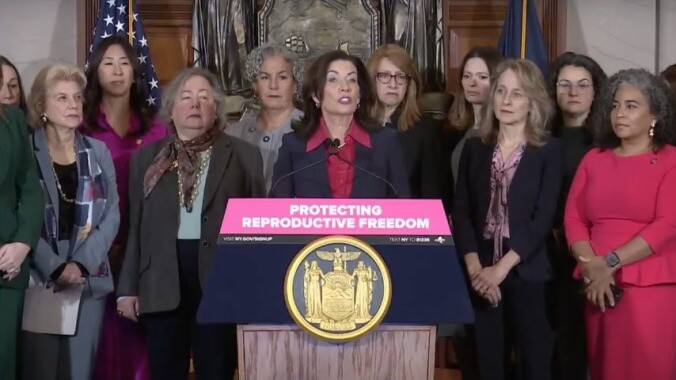New York Strengthens Laws to Protect Abortion Providers
Last week, a Louisiana jury indicted a New York-based doctor for allegedly mailing abortion pills to a teen and her mom, who was arrested on Friday
Photo: Screenshot AbortionPolitics
On Monday, New York Gov. Kathy Hochul (D) signed a bill that builds on existing protections for New York doctors who provide abortion care to out-of-state patients. The new law allows doctors to withhold their names from prescription labels for the abortion pills mifepristone and misoprostol. Instead, doctors can request that the pharmacy print the name of their practice.
The signing comes days after a Louisiana jury indicted New York-based Dr. Margaret Carpenter for allegedly mailing abortion pills to a Louisiana teen and her mother; Carpenter is charged with criminal abortion by means of abortion-inducing drugs—a felony in the state, which enforces a total ban punishable with up to 15 years in prison. A warrant has been issued for Carpenter’s arrest.
In addition to their total abortion ban, Louisiana also became the first state in the nation in May to criminalize possession of abortion pills unless the person is imminently about to take them. Those in violation are threatened with fines of $5,000 and up to five years in jail.
Meanwhile, New York is among several states that enforce shield laws—something abortion-banned states are beginning to challenge—which protect abortion providers from legal threats for mailing medication abortion to individuals across state lines. In December, Texas also sued Carpenter for allegedly mailing abortion pills to a Dallas woman; Texas’ is a civil case that doesn’t involve criminal charges.
-

-

-

-

-

-

-

-

-

-

-

-

-

-

-

-

-

-

-

-

-

-

-

-

-

-

-

-

-

-

-

-

-

-

-

-

-

-

-

-








































